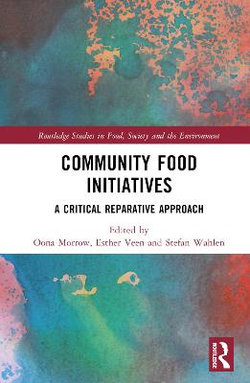While community food initiatives aim to tackle issues like food security, food waste or food poverty, it is a cause for concern for many when they are framed as the next big "solution" to the problems of the current industrialised food system. They have been critiqued for being too neoliberal, elitist, localist; for not challenging structural inequalities (e.g. racism, privilege, exclusion, colonialism, capitalism) and for reproducing these inequalities within their own contexts. This edited volume examines the everyday realities of community food initiatives, focusing on both their hopes and their troubles, their limitations and failures, but also their best intentions, missions, and models, alongside their capacity to create hope in difficult times. The stories presented in this book are grounded in contemporary theoretical debates on neoliberalism, diverse economies, food justice, community and inclusion, and social innovation, and help to sharpen these as conceptual tools for interrogating community food initiatives as sites of both hope and trouble. The novelty of this volume is its focus on the everyday doings of these initiatives in particular places and contexts, with different constraints and opportunities. This grounded, relational, and place-based approach allows us to move beyond more traditional framings in which community food initiatives are either applauded for their potential or criticized for their limitations. It enables researchers and practitioners to explore how community food initiatives can realize their potential for creating alternative food futures, and generates innovative pathways for theorising the mutual interplay of food production and consumption.
This volume will be of great interest to students and scholars of critical food studies, food security, public health and nutrition as well as human geographers, sociologists and anthropologists with an interest in food.




Share This Book: